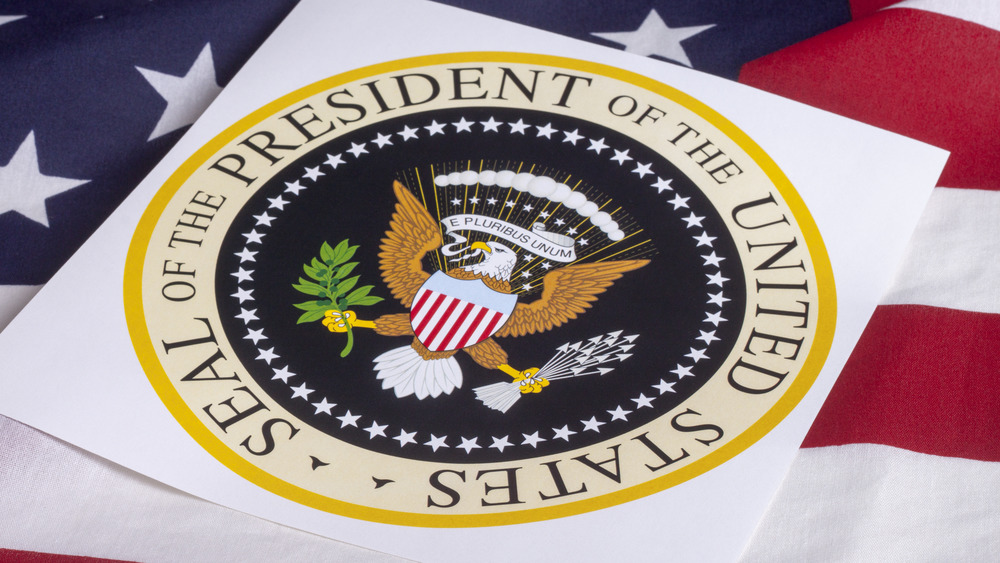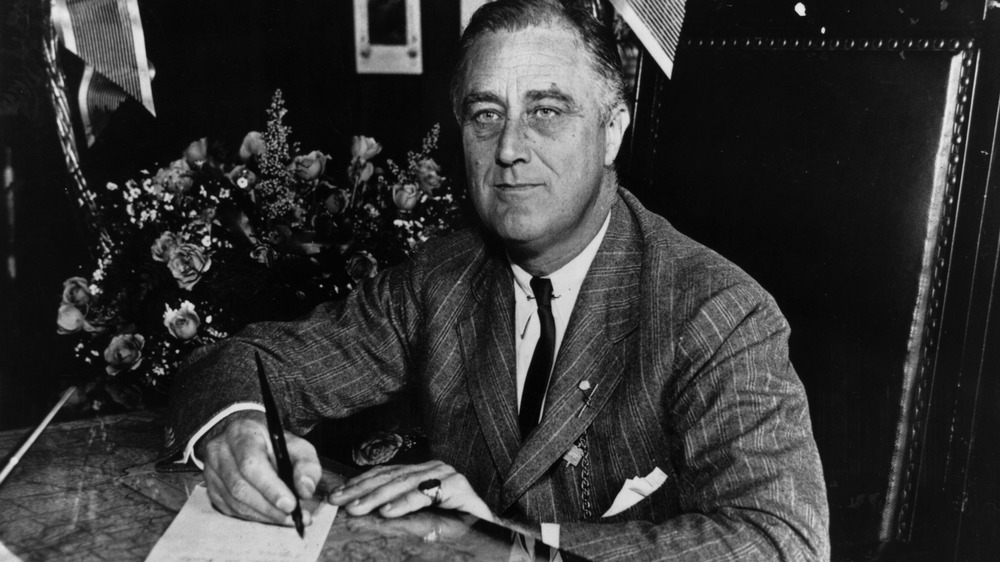This Is The Most Pardons Any President Has Ever Made
Being the president of the United States comes with more responsibilities than the average person could fit on their metaphorical plate and more powers than we'd know what to do with. One of those powers is a presidential pardon, that wipes away the convicted wrongdoings from any citizen of the country, except for those who've been impeached from office. These pardons can be used for any federal or military offense the president so chooses, while state-level pardons are issued at the discretion of state governors.
Presidents throughout our history have used their pardon power to give convicted criminals a new start. Maybe they believed the criminal had served their time, or the charges weren't backed by enough evidence, or maybe they thought the entire case failed to hold up. The reason doesn't matter. As long as a criminal follows the proper procedures, as can be found on the Department of Justice website, then the head of state can grant them forgiveness and send them back to a somewhat normal life.
There's no set number of pardons a president can issue, ranging wildly depending on who's holding office. As President Trump's term of office comes to a close, one of the questions people have been asking is, which president has issued the most pardons? The answer: Franklin D. Roosevelt. No other president has come close, for a couple of reasons.
More pardons are easy when you serve four terms
It's easy to hold the record for most presidential pardons when you also hold the record for most terms in office. Franklin D. Roosevelt is the only president to serve four terms, though he only served one year of his final term before he died of a cerebral hemorrhage. Even then, FDR is the only president to serve more than two terms, which gives him an edge over his competition.
During his elongated stay in the White House, FDR pardoned 2,819 people of their crimes, according to data from the US Department of Justice. The Pew Research Center points out that FDR also commuted 488 sentences and provided 489 with other acts of clemency. That brings his total acts of presidential mercy to a whopping 3,796. To put that into perspective, Truman ended his presidential career with 2,044 acts of clemency, while Obama issued 1,927 and Trump only 95 total pardons and commutations, as recorded by the Department of Justice.
President Jimmy Carter ordered a wide-sweeping pardon for all draft-dodgers in the Vietnam War. This order has a way of confusing numbers. Those convicted were pardoned, while those who hadn't yet been found guilty were simply forgiven and the charges dropped, and so his numbers remain relatively small. Andrew Johnson's order, seen on the Library of Congress website, granted pardons and amnesty to those who fought for the Confederacy during the American Civil War. It's similarly confusing, but doesn't bring him into the lead, either.
Roosevelt pardoned two types of people
The majority of pardons issued by President Franklin D. Roosevelt fall into two camps: One for offenses that seem a little silly and one for offenses during wartime. He had a habit of doling out presidential acts of forgiveness to those who were convicted of violating their probation, according to US News, because of a law that prevented those on probation from owning or drinking alcohol. It didn't matter what the original crime was or if you were a legal adult: If you were on probation, drinking would break your probation agreement and land you back in jail. Apparently, FDR didn't think you should be locked up for having a drink.
The other major group of people pardoned by FDR was those who broke the Espionage Act and the Selective Service Act during World War I. FDR started his term in a contentious time between the two World Wars, giving him the pleasure of leading during WWII while cleaning up from WWI. In December of 1933, FDR issued a proclamation (posted at the website of the FDR Library) pardoning those convicted for their opposition to the country's involvement in WWI. Unlike Carter and Johnson, FDR's post-wartime pardon helped establish his place as "King of Presidential Pardons." It's not a real title, but we're giving it to him anyway.


